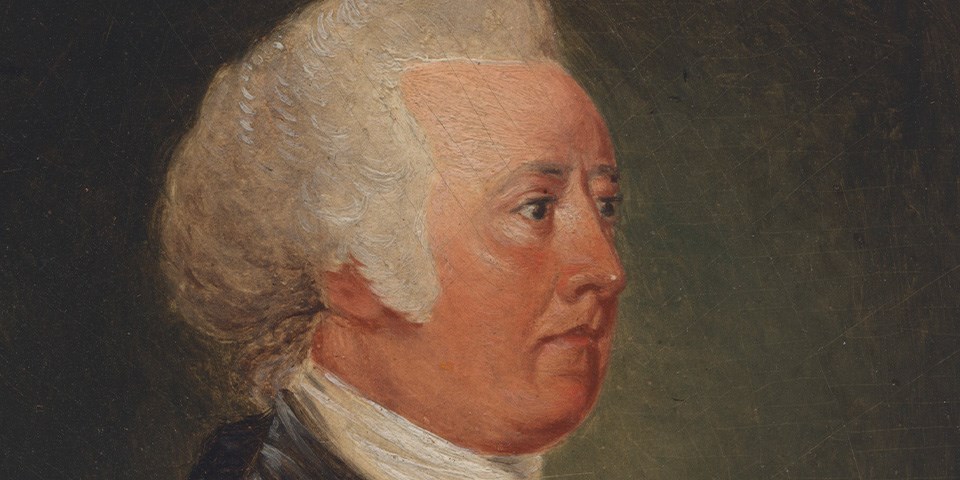Part of a series of articles titled The Constitutional Convention: A Day by Day Account for July 16 to 31, 1787.
Article
July 16, 1787: The Great Compromise Passes

National Portrait Gallery, Smithsonian Institution. https://npg.si.edu/object/npg_NPG.97.190?destination=node/63231%3Fedan_local%3D1%26edan_q%3Djohn%252Brutledge
"Although we could not do what we thought best in itself, we ought to do something."
--John Rutledge (SC)
The Convention Today
The day began in the Assembly Room with a dramatic vote on the most important compromise of the entire Convention. The components of this compromise were:
- The first house of the legislature would offer the states proportional representation (more populous states would have more representatives).
- The first house would have sixty-fire members in the beginning (no census had yet been administered, so the delegates had to estimate how many representatives each state was entitled to).
- The legislature would be required to conduct a census every ten years and reapportion representation in the first house in accordance with the census results.
- Direct taxation would be in the same proportion as representation in the first house.
- Money bills would only originate in the first house.
- The second house of the legislature would give equal representation to all states.
The vote results:
- Five states, yes—Connecticut, New Jersey, Delaware, Maryland, and North Carolina (Spaight, no)
- Four states, no—Pennsylvania, Virginia, South Carolina, Georgia
- One state divided—Massachusetts (Gerry and Strong, yes; King and Gorham, no)
Gerry’s reluctant “yes” and the surprising support of one southern state, North Carolina (which had voted against equal representation in the second house on July 2) may have kept the United States united.
The Convention could now move on to, and again deadlock on, a new issue. The language being discussed stated that the national government could “legislate in all cases to which the separate States are incompetent.”
Butler (SC) argued that the language was too vague. Rutledge (SC) agreed. Gorham responded “The vagueness of the terms constitutes the propriety of them. We are now establishing general principles, to be extended hereafter into details, which will be precise and explicit.”
The Convention adjourned on a bitter note, with Randolph (VA) declaiming the narrowly passed compromise and expressing hope that discussions outside of the Convention might result in a different compromise that would get the small states to give up on equal representation in one house of the legislature. Gerry, Rutledge, and Charles Cotesworth Pinckney (SC), all of whom had had voted the same on this issue as Randolph on July 2, expressed the futility of such a hope and said that it would be better to accept this imperfect compromise than to let the Convention fail.
- The Convention's most important compromise passed by the narrowest of margins.
Delegates Today
- General Washington dined at Mr. Morris' and drank tea with Mrs. Powell.
- Nathan Dane reported from the Confederation Congress to King (MA) about the recently passed Northwest Ordinance.
- Christopher Marshall wrote that Pennsylvania's paper money, which was losing its value, was no longer accepted by the vendors in the Philadelphia market. This caused the city’s poor great hardship.
Last updated: September 21, 2023
